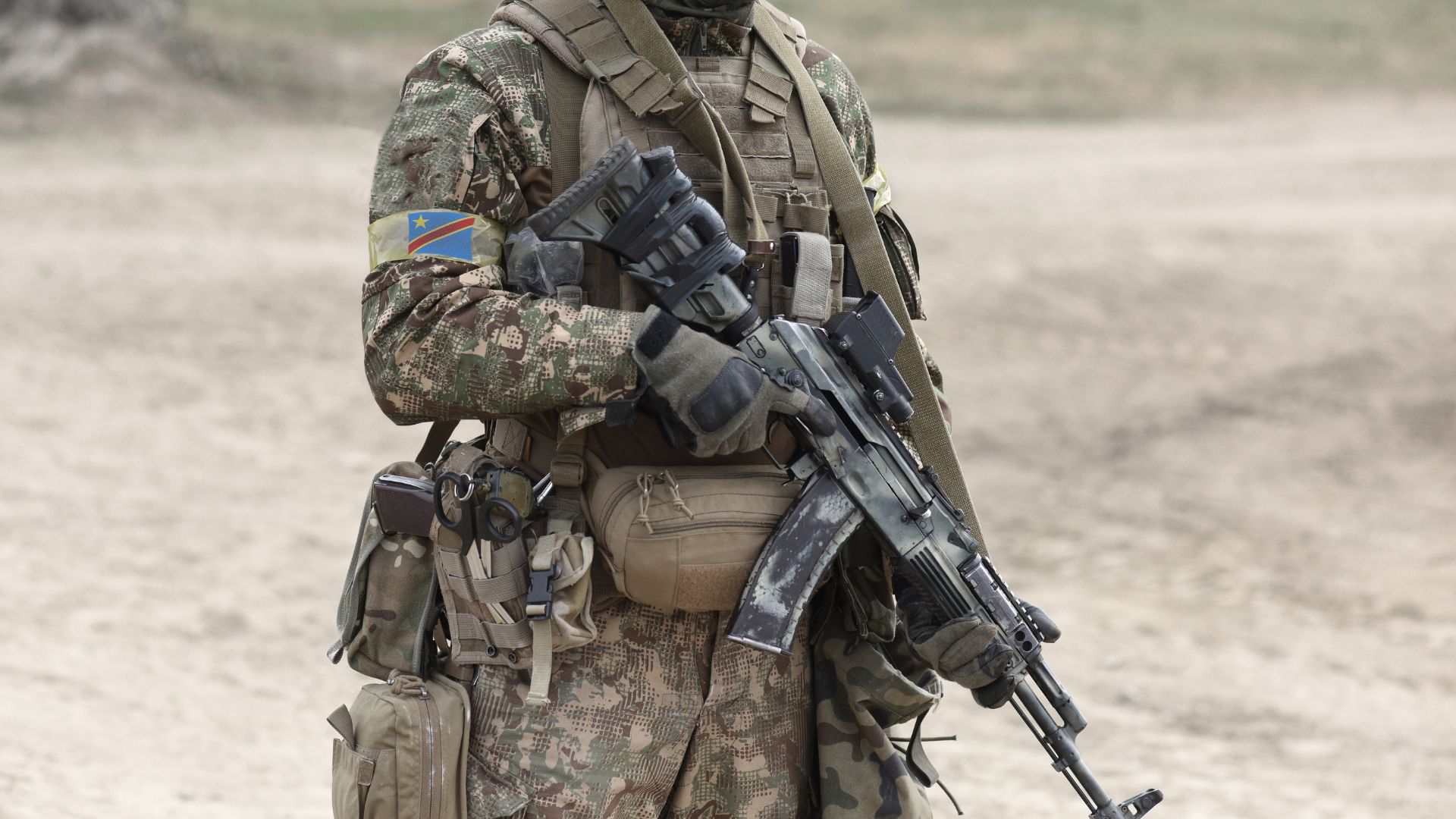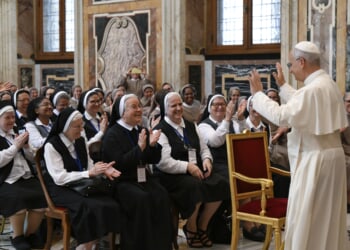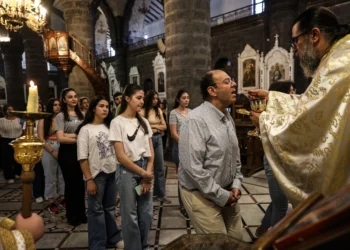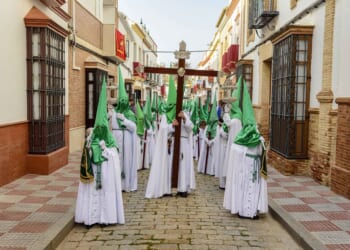
In a significant diplomatic breakthrough, the foreign ministers of Rwanda and the Democratic Republic of the Congo signed a peace agreement on Friday at the U.S. State Department, aiming to end the deadliest conflict of the 21st century.
The deal, brokered by the United States, marks a potential turning point in a war that has claimed over six million lives since 1997.
President Trump welcomed the Foreign Ministers of Rwanda and the Democratic Republic of Congo to the Oval Office to sign a historic peace agreement, ending a 30-year conflict.
“Today, the violence & destruction come to an end, & the entire region begins a new chapter of hope.” pic.twitter.com/20P2SMBQiR
— The White House (@WhiteHouse) June 27, 2025
Trump’s Sovereign Wealth Fund: What Could It Mean For Your Money?
Rwandan Foreign Minister Olivier Nduhungirehe and Congolese Foreign Minister Thérèse Kayikwamba Wagner signed the accord alongside Secretary of State Marco Rubio in a ceremony held in the Harry S. Truman Building.
The agreement targets an end to hostilities between Kinshasa and the M23 rebel group, an armed insurgency backed by Rwanda that has dominated eastern Congo in recent years.
This Could Be the Most Important Video Gun Owners Watch All Year
The agreement outlines three central provisions: the withdrawal of Rwandan forces from Congolese territory within 90 days, the implementation of an economic integration framework within the same timeframe, and the establishment of a joint security coordination mechanism within 30 days.
A copy of the agreement was obtained by Reuters.
President Donald Trump praised the diplomatic breakthrough earlier in the day, highlighting the efforts of Rubio and senior adviser for Africa Massad Boulos in facilitating the negotiations.
“I’m a little out of my league on that one because I didn’t know too much about it,” Trump said.
“I knew one thing: They were going at it for many years with machetes, and it is one of the worst, one of the worst wars anyone’s ever seen. And I just happened to have somebody that was able to get it settled.”
Following the ceremony, Nduhungirehe and Wagner visited the White House, where they met with President Trump, Vice President J.D. Vance, and Rubio.
During the meeting, Congolese journalist Hariana Veras addressed the president, thanking him for his administration’s attention to the decades-long crisis.
“Even myself, I covered President Biden’s administration. I pressed many times about this conflict. People are dying in Congo. This country has so much potential, but they need help, because this war is destroying the country. They never gave me any answer. And [DRC President Felix Tshisekedi] told me … that he’s very … thankful for what you’re doing, for what your administration is doing, not only him, the entire Congolese people, they see that finally, they will have hope,” Veras said.
“We reached out to Biden several times for help. He ignored us.”
President Trump is currently facilitating a peace deal between Rwanda and the Democratic Republic of Congo. President Tshisekedi intends to nominate President Trump for a Nobel Peace Prize for finally bringing… pic.twitter.com/onGoDjxzIQ
— Natalie Jean Beisner (@NJBeisner) June 27, 2025
Veras also noted that President Tshisekedi is considering nominating President Trump for the Nobel Peace Prize, citing his global peace efforts.
Trump thanked her for the remarks and, in a lighter moment, called her “beautiful,” drawing laughter from the room.
Trump calls @HarianaVeras, a White House reporter from the DRC, beautiful, during the peace agreement between Rwanda and the Democratic Republic of the Congo at the White House brokered by the Trump administration. pic.twitter.com/GmxF9vJxVs
— Roya News English (@RoyaNewsEnglish) June 28, 2025
President Trump also recognized the devastating toll of the conflict.
“Beautiful, beautiful region, but they had a lot of war, right? A lot of fighting, a lot of death. It’s displaced countless people and claimed the lives of thousands and thousands. But today, the violence and destruction comes to an end, and the entire region begins a new chapter of hope and opportunity, harmony, prosperity, and peace,” he said.
The president also extended appreciation to Qatar, Togo, and the African Union for their roles in advancing peace efforts.
He warned both Kigali and Kinshasa of “very severe penalties, financial and otherwise,” should either violate the terms of the agreement.
Both foreign ministers expressed cautious optimism about the peace deal’s durability, citing previous failed efforts but emphasizing the importance of U.S. involvement.
“The second point is: Stay committed, stay on board,” Wagner told Trump.
“We need the United States to make sure that this agreement holds, and that you hold us accountable.”
Nduhungirehe credited the agreement’s potential success to President Trump’s leadership and the administration’s focus on regional economic integration.
“There has been many mediation facilitation in the past, but none of them succeeded, and we believe that it’s because of your leadership and your steadfast, steadfast commitment to this process,” he said.
Boulos referred to the peace agreement as the “Washington Accord.”
President Trump endorsed the title but added jokingly that he would have preferred it be called the “Trump Accord.”
Secretary Rubio praised the leaders of both nations for pursuing a path of peace.
“Wars get a lot more attention than peace, but peace is harder than war, a lot harder. And I want to congratulate both of the leaders here and their respective presidents for choosing the harder path, which is often peace,” Rubio said.
🚨 JUST IN: The Congo and Rwanda leaders have signed a PEACE DEAL at the White House after it was brokered by President Trump and Marco Rubio
This was an incredibly bIoody war costing thousands of lives.
The PEACE PRESIDENT strikes again! 🇺🇸
AWARD TRUMP THE NOBEL PEACE PRIZE! pic.twitter.com/vsqykSYbRc
— Nick Sortor (@nicksortor) June 27, 2025
The deal was preceded by the signing of a Declaration of Principles by Rubio, Wagner, and Nduhungirehe on April 25 in Washington.
Presidents Tshisekedi and Kagame are expected to return to Washington in the coming weeks to finalize the full protocol of the agreement.
The conflict intensified most recently in January, when the M23 rebel group launched an offensive that overtook Goma, the capital of North Kivu province, and Bukavu, the capital of South Kivu.
The Congolese army and U.N. peacekeeping forces were routed, with abandoned military equipment strewn across the region. Thousands were killed in the attack.
In a bid to turn the tide, Tshisekedi’s government hired U.S. lobbyists in February under a $1.4 million contract to foster security and mineral cooperation with the Trump administration.
The deal was aimed at replicating Trump’s earlier mineral agreements with Ukraine.
Congo holds vast deposits of cobalt, copper, tin, tungsten, and tantalum — resources vital to global electronics and clean energy technologies.
Chinese firms currently dominate cobalt mining and refining in the region, with state-owned enterprises controlling an estimated 80% of Congolese cobalt production and as much as 90% of cobalt refining.
A United Nations report previously found that 150 tons of coltan had been “fraudulently exported to Rwanda and mixed with Rwandan production.”
The Congolese government estimates Rwanda earns $1 billion annually from illegally smuggled minerals.
With the peace deal now in place, U.S. officials believe the agreement will not only help stabilize the region but also shift strategic mineral supply chains away from Chinese dominance.
Trump SLAMS reporter asking about Canada after a historic peace deal was made between the Congo and Rwanda:
“We just ended a war that was going on for 30 years with six million people dead, so don’t ask me a trade question on Canada.” pic.twitter.com/vgPc1l7T5Q
— Libs of TikTok (@libsoftiktok) June 27, 2025
Connect with Vetted Off-Duty Cops to Instantly Fulfill Your Security Needs

![Trump Admin Brokers End to Bloodiest War in the 21st Century After Biden Ignored It [WATCH]](https://www.right2024.com/wp-content/uploads/2025/06/Trump-Admin-Brokers-End-to-Bloodiest-War-in-the-21st-750x375.jpg)
![Man Arrested After Screaming at Senators During Big Beautiful Bill Debate [WATCH]](https://www.right2024.com/wp-content/uploads/2025/06/Man-Arrested-After-Screaming-at-Senators-During-Big-Beautiful-Bill-350x250.jpg)














